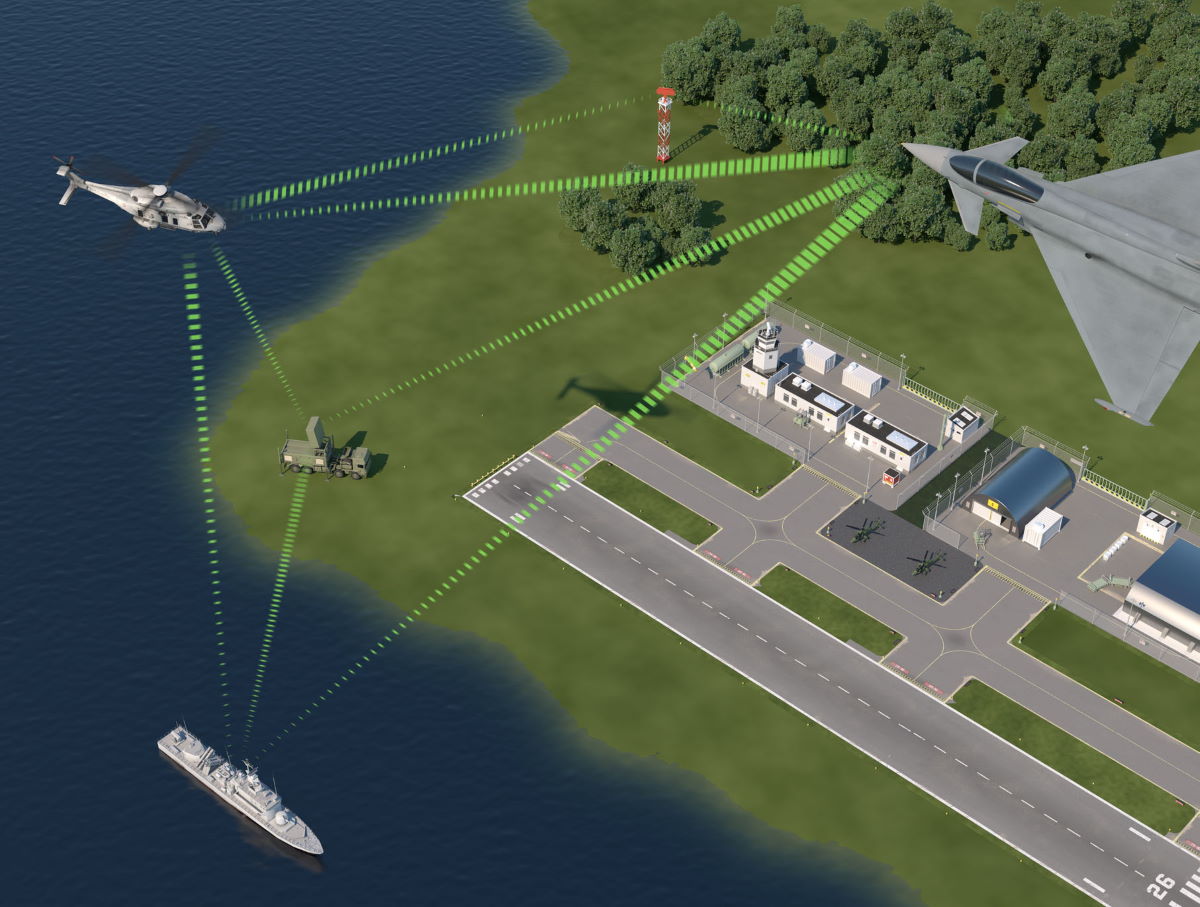Sensor solutions specialist HENSOLDT has achieved a major technology development milestone which enhances substantially the detection capabilities of Ground-based Air Defence (GBAD) systems.
The company implemented and tested successfully a software enhancement with its proven MSSR 2000 ID secondary radar that allows for precise tracking of aircraft in addition to the conventional surveillance mode of Identification-friend-or-foe (IFF) systems. A so-called “stop & stare mode” allows GBAD systems to process identification tracks in specific sectors in near-realtime and very precisely.

The new feature uses electronic beam steering and automatized antenna control in order enable the user to progress from the rather ordinary surveillance operation to a very focused lock-on and track mode. Thereby, distinction between friendly and hostile forces is substantially accelerated and thus the protection of forces on the ground considerably improved.
IFF systems precisely identify aircraft by automatically sending interrogation signals which are answered by transponders on-board friendly aircraft. Thus, IFF enables field commanders to distinguish friendly from hostile forces and helps avoiding friendly fire incidents. The most recent “Mode 5” IFF systems like MSSR 2000 ID employ sophisticated encryption techniques to avoid hostile signal manipulation, thus ensuring that the identification process is absolutely reliable and secure.
HENSOLDT is an expert in Mode 5 IFF. It is under contract to upgrade German, French and UK armed forces’ IFF systems to the “Mode 5” standard and has delivered IFF systems – including crypto devices – for ground and naval applications of several NATO and partner nations. Among others, the company’s equipment is deployed on all German Navy ships as well as several UK Royal Navy and Royal Norwegian Navy ships. In total, HENSOLDT has more than 600 IFF systems under contract in 42 nations.
Source: HENSOLDT news release




